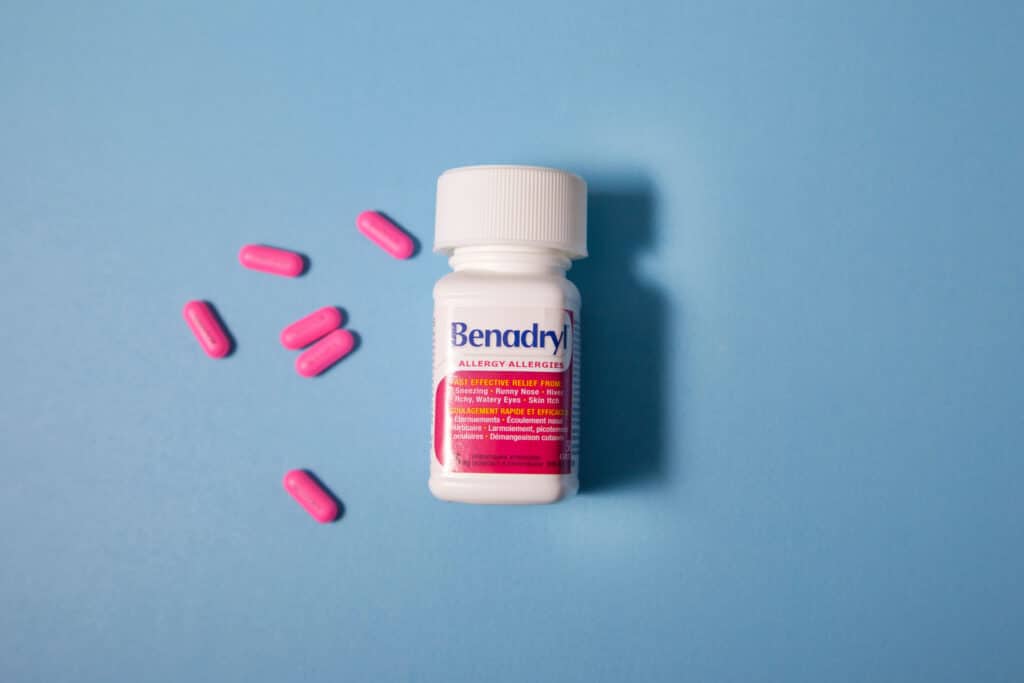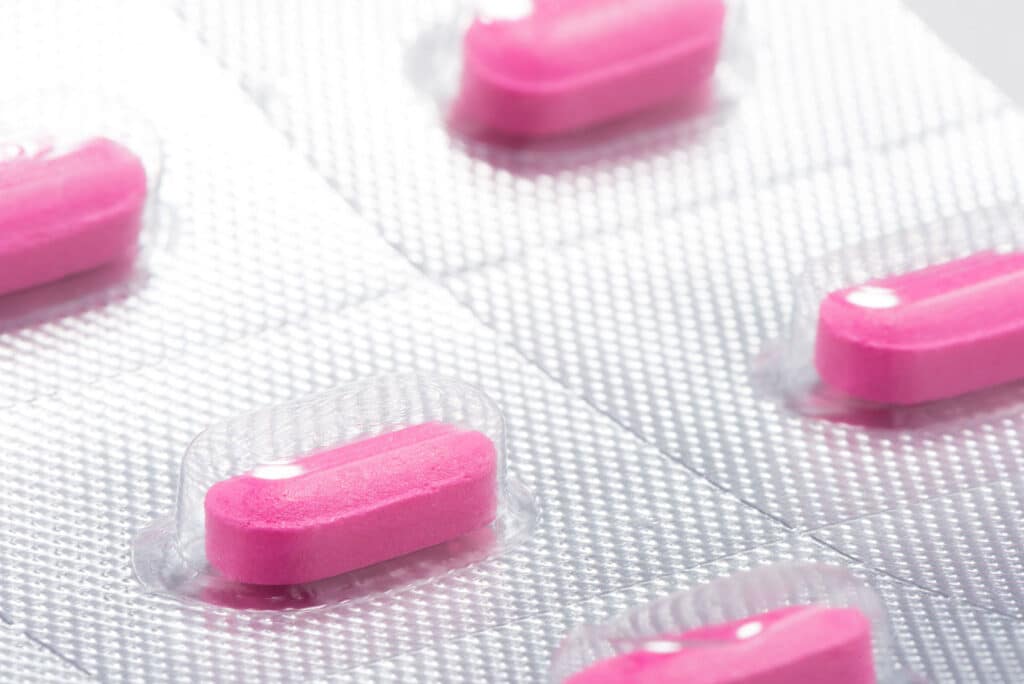Benadryl is a common, over-the-counter allergy medication – one that can result in mild sedative effects or when taken in larger amounts, result in feelings of intoxication. Benadryl is sometimes abused by individuals who are looking for an inexpensive and easily accessible “high.” Earlier this month, the US Food and Drug Administration issued a warning revolving around the misuse of Benadryl. (1) The warning suggests that teenagers and young adults are often taking more than the recommended dose of the over-the-counter medication (more than 25 mg at a time), which is leading to a wide range of serious health-related issues and an increase in emergency room visits.
TL;DR – Yes, you can get high on Benadryl, but it is not safe and comes with serious risks.

The FDA confirms that taking significantly more than 25 mg of Benadryl at one time leads to seizures, coma, serious heart problems, and overdose-related death. Those who take the medication in large amounts hoping to feel some level of euphoria are doing a significant amount of harm to their physical bodies – and sometimes this harm is irreparable. If you know someone who has been abusing Benadryl, seeking professional help is necessary to prevent serious issues from occurring down the road.
Is 75 mg of Benadryl too much?
For adults and teens, the diphenhydramine dosage is 25 to 50 mg every 4 to 6 hours. The maximum amount you should take in one day is 300 mg. Keep in mind, taking higher doses can increase the risk of side effects, including drowsiness.
Can Benadryl Get You High?
Many mistakenly believe that over-the-counter medications like Benadryl are safe to take in high doses because they can be purchased legally from pretty much any drug store or supermarket. The truth is, however, when antihistamine medications like Benadryl are taken in exceptionally high doses, yes it can result in intoxicating effects, and when abused consistently they can result in serious health-related issues. Teenagers and young adults commonly take the medication in high doses in hopes of achieving euphoric effects. Rather than producing feelings of euphoria, however, the drug simply has strong sedative effects. When more than the recommended dose is taken in one sitting, the individual who is taking the medication will likely feel groggy, disoriented, and fatigued.
Over-the-counter medication abuse
This medication is also commonly mixed with alcohol, which can be extremely dangerous. Those who mix Benadryl and alcohol might experience shallow breathing and respiratory depression, an irregular heartbeat, and an extreme lack of coordination. It is always dangerous to mix alcohol with over-the-counter medications of any kind, but mixing Benadryl and alcohol can be lethal. If you are concerned about the amount of Benadryl your loved one has been taking and you would like to learn more about allergy medication abuse, please feel free to reach out to us at any point in time.

Addiction Recovery at Garden State Treatment Center
At Garden State Treatment Center, we serve men and women of all ages throughout the state of New Jersey and all surrounding areas. We treat substance abuse and dependence disorders of all kinds, from severe addiction involving life-threatening illicit substances like heroin or methamphetamine to dangerous and readily accessible substances like over-the-counter allergy medications like Benadryl. Because addiction is a progressive disease, it is not uncommon for individuals who abuse chemical substances like Benadryl to eventually progress to abusing more dangerous illicit substances. When it comes to substance abuse, it is always better to reach out for help before it is too late. If you have been suffering at the hands of a substance abuse disorder of any type of severity, we are available to help.
Our carefully developed program of addiction recovery was formulated by an experienced team of professionals, including licensed therapists, psychiatrists, addiction specialists, medical doctors, and prescribing physicians. Regardless of what substance you were actively abusing, our comprehensive recovery program will undeniably help you overcome addiction once and for all and go on to lead a happy and fulfilling life. To learn more about our recovery program or to get started on your journey of recovery, please feel free to give us a call at any point in time.
FAQ
Can you get high on Benadryl?
Why do people snort Benadryl?
What is a safe dosage of Benadryl as not to get high?
Published on: 2020-10-04
Updated on: 2025-01-01



